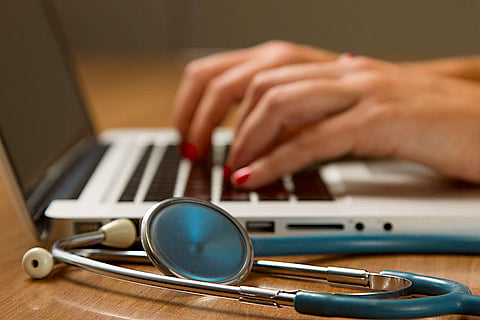

Since the time primary health care has gained importance, we have often heard of terms such as ‘barefoot doctors’, ‘village doctors’, ‘boat doctors’ and the much underrated ‘community health specialists’.
But now there is a new category called the ‘Social Media Doctors’.
If you think that this group of ‘Social Media Doctors’ have an MBBS degree or specialisation in some field then please stop there. Let me set the record straight.
I am referring to all social networking platforms, articles, blogs, etc on the internet which provides all kind of false or modified information related to the medical field.
The internet has affected the medical field as much as it has affected all domains of life. I have come across patients visiting me with preconceived notions acquired from ‘Dr Google’, which creates a barrier to convincing them that their disease is minor and not serious.
The internet is a helpful portal when it comes to sharing correct healthcare information, discussing health policies and interacting with patients and caregivers. But the flip-side is that it is not only a doorway to myths and misconceptions but also affects access to health care services. People find it easy to search for his/her ailment on the internet and very often end up making a self-diagnosis without consulting a doctor.
When searching for medical information becomes a condition in itself it is termed ‘cyberchondria’.
The findings from a national survey by the Pew Research Center’s the Internet & American Life Project revealed that 72% of internet users say they used online search engines to look for their symptoms for one disease or another, 41% of “online diagnosers” says a medical professional confirmed their diagnosis and an added 2% say a medical professional partly confirmed it. This study also came out with some interesting findings--35% did not visit a clinician for a professional opinion, 18% said that their consultants either did not agree or presented a different opinion.
Sharing information related to individual or community health on social media sites makes preventive and diagnostic information widely available. The internet can be a useful platform for successful implementation of government health programmes that will help bust health myths prevalent in the society. It can bring about an increase in demand and access to various health services thus bringing about a behavioural change among individuals and the community at large.
A major challenge is to counter the spreading of half truths and their rapid circulation without the involvement of health practitioners, institutions and organisations. Spreading false information about health remedies is something we should all refrain from.
Knowing your health and your body is a primary right of every individual. But getting the correct information through learned professionals is much more important. There is a reason one has to spend 5-7 years to train in the field of medical education to be able to call themselves doctors.
(The author is a resident in Community Medicine, Government Medical College, Patiala and Research Associate, Center for Health and Development (CHD Group), Mangalore. )